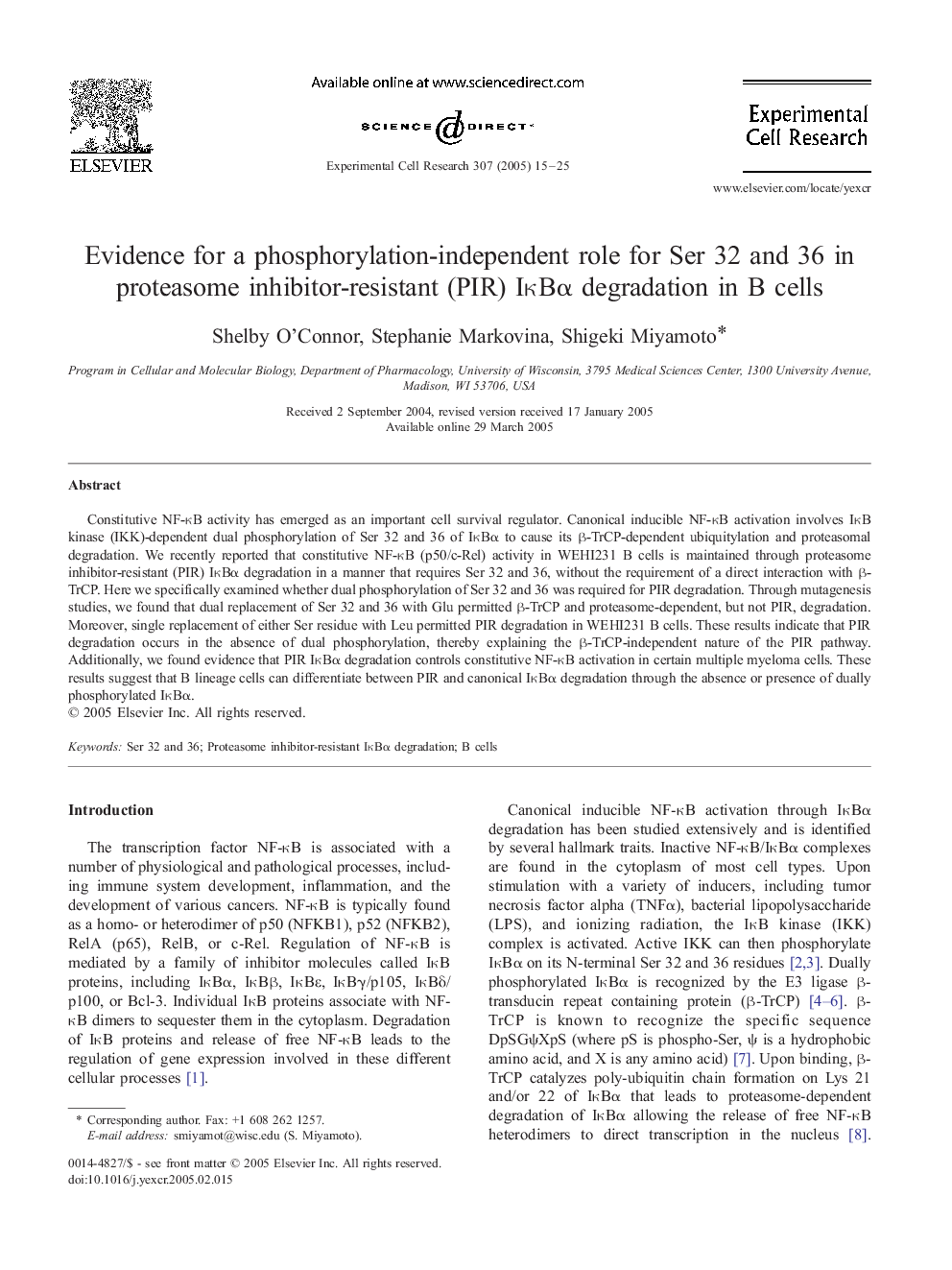| Article ID | Journal | Published Year | Pages | File Type |
|---|---|---|---|---|
| 10905184 | Experimental Cell Research | 2005 | 11 Pages |
Abstract
Constitutive NF-κB activity has emerged as an important cell survival regulator. Canonical inducible NF-κB activation involves IκB kinase (IKK)-dependent dual phosphorylation of Ser 32 and 36 of IκBα to cause its β-TrCP-dependent ubiquitylation and proteasomal degradation. We recently reported that constitutive NF-κB (p50/c-Rel) activity in WEHI231 B cells is maintained through proteasome inhibitor-resistant (PIR) IκBα degradation in a manner that requires Ser 32 and 36, without the requirement of a direct interaction with β-TrCP. Here we specifically examined whether dual phosphorylation of Ser 32 and 36 was required for PIR degradation. Through mutagenesis studies, we found that dual replacement of Ser 32 and 36 with Glu permitted β-TrCP and proteasome-dependent, but not PIR, degradation. Moreover, single replacement of either Ser residue with Leu permitted PIR degradation in WEHI231 B cells. These results indicate that PIR degradation occurs in the absence of dual phosphorylation, thereby explaining the β-TrCP-independent nature of the PIR pathway. Additionally, we found evidence that PIR IκBα degradation controls constitutive NF-κB activation in certain multiple myeloma cells. These results suggest that B lineage cells can differentiate between PIR and canonical IκBα degradation through the absence or presence of dually phosphorylated IκBα.
Keywords
Related Topics
Life Sciences
Biochemistry, Genetics and Molecular Biology
Cancer Research
Authors
Shelby O'Connor, Stephanie Markovina, Shigeki Miyamoto,
